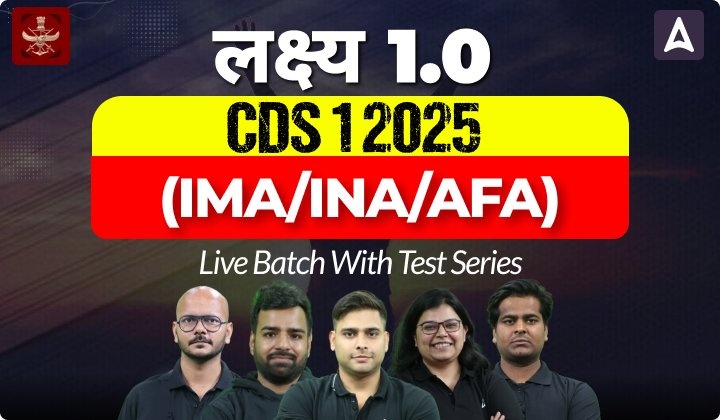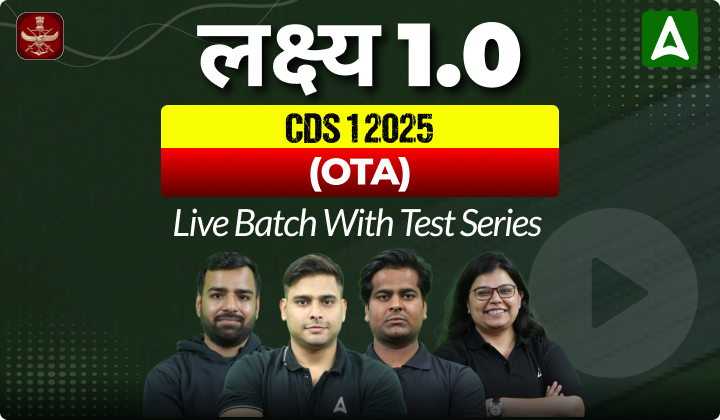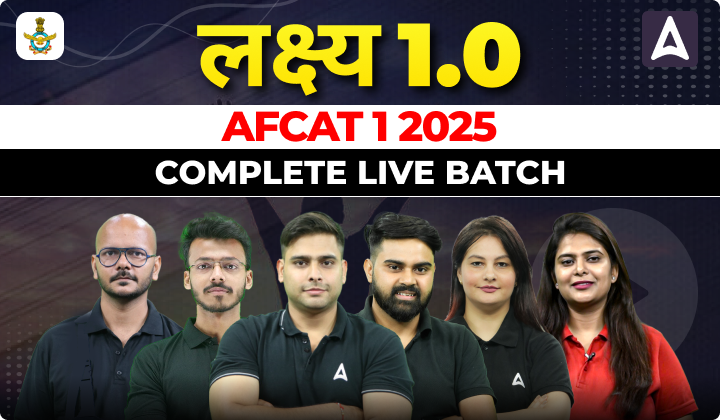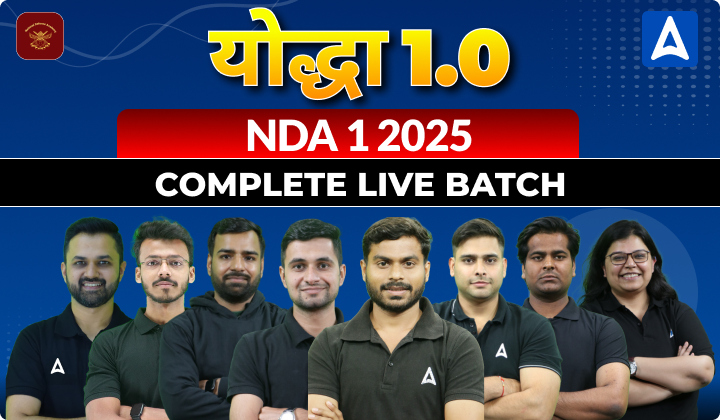In the world of Technology and Advancement, Missiles are the game-changer in Modern Warfare. Indian Armed Forces is growing its missile system according to the latest demand and Technology. The missiles are weapons that can aim at targets from kilometers of distance from a point with accuracy. In this article, We have discussed Air to Air missiles.
What is Missile?
A missile is a self-propelled, guided weapon system designed to deliver a warhead to a specific target. n developing and acquiring advanced air-to-air missiles (AAMs). These weapons systems are crucial for protecting fighter aircraft and neutralizing enemy aerial threats.
Components of Missiles
- Propulsion system: This provides the power for the missile to fly, often using rocket engines or jet engines.
- Guidance system: This directs the missile towards its target. Various guidance systems exist, including:
- Inertial guidance: Uses internal sensors to navigate.
- Radar guidance: Uses radar signals to track and guide the missile.
- Infrared guidance: Detects heat signatures of the target.
- Satellite navigation: Uses GPS or similar systems for precise targeting.
- Warhead: The destructive payload carried by the missile.
- Airframe: The structure of the missile that provides aerodynamic stability.
How does a Missile Works?
- Target acquisition: Identifying and locking onto the target.
- Launch: The missile is fired from its platform.
- Midcourse guidance: The missile follows a predetermined flight path.
- Terminal guidance: The missile makes final adjustments to hit the target.
- Impact: The warhead detonates or directly hits the target.
Air to Air Missiles( AAMs)
Air to Air missiles are guided missile/weapon that are launched through the fighter Jets to destroy another air target such as drones and another aircrafts. The AAM’s plays a crucial role in the modern warfare system .India has made development in indigenous AAMs and acquiring advanced systems from foreign partners. They are broadly categorized into two types:
- Short-Range Air-to-Air Missiles (SRAAMs): These are designed for close-range combat or “dogfights.” They typically use infrared guidance to home in on the target’s heat signature.
- Beyond Visual Range Air-to-Air Missiles (BVRAAMs): These missiles can engage targets at much longer ranges, often using radar or semi-active radar homing guidance.
While India has made impressive progress in indigenous development, it has also acquired advanced AAMs from foreign suppliers to bolster its air defense capabilities. Notably, the IAF operates the Israeli Python-5 and Derby missiles, known for their exceptional performance in close-combat scenarios.
List of Air to Air Missiles( AAMs)
| Name | Range | Development Authority | |
| Astra Mark I | 110km | DRDO |  |
| Astra Mark II | 160km | DRDO |  |
| Astra Mark III | 350km | DRDO |  |
| MICA | 500-600km | MBDA, France | 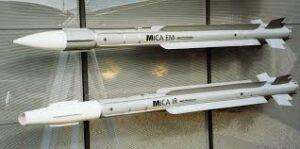 |
| Solid Fueled ducted Ramjet | 350km | DRDO | 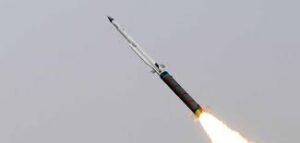 |
| Novator KS- 172 | 200-300km | NPO |  |
Astra Missile System
Astra is the Beyond Visual Range missile being developed by the DRDO exceeding 100 Km range. The Astra Missiles series comprises of Astra Mk 1, Astra Mk2, and Astra Mk 3 which will be integrated with the advanced aircrafts of Indian Air Force like LCA Tejas, Su- 30 MKI, Rafale and AMCA. India has been actively developing the Astra family of air-to-air missiles to enhance its aerial combat capabilities. This series comprises multiple variants with increasing ranges and advanced technologies.

Astra Mk1
Astra Mk 1 is India’s first indigenously developed Beyond Visual Range (BVR) air-to-air missile.
- Propulsion: Single pulse solid rocket motor
- Status: Already in service with the Indian Air Force
- Production: Ordered in two batches totaling 600 missiles
- Range: Officially declared as 110 kilometers, though DRDO sources indicate 80 kilometers.
Astra Mk2
Building upon the Mk1, the Astra Mk2 aims for extended range and improved capabilities.
- Propulsion: Dual pulse solid rocket motor
- Development Stage: Captive trials and ballistic firing completed
- Claimed Range: 160 kilometers, with DRDO/ANI sources suggesting 130 kilometers.
Astra Mk3
The most ambitious variant, the Astra Mk3, seeks to establish India as a leader in air-to-air missile technology.
- Propulsion: Solid Fuel Ducted Ramjet (SFDR)
- Development Stage: Officially announced and test-fired
- Achieved Ranges: Demonstrated capabilities of 190 kilometers at 8 kilometers altitude and 340 kilometers at 20 kilometers altitude.
| Related Articles | |
| List of static Gk for all Defence Exams | IAF Commands and Training Institutes |
| List of Military operations | SSB Interview Questions |

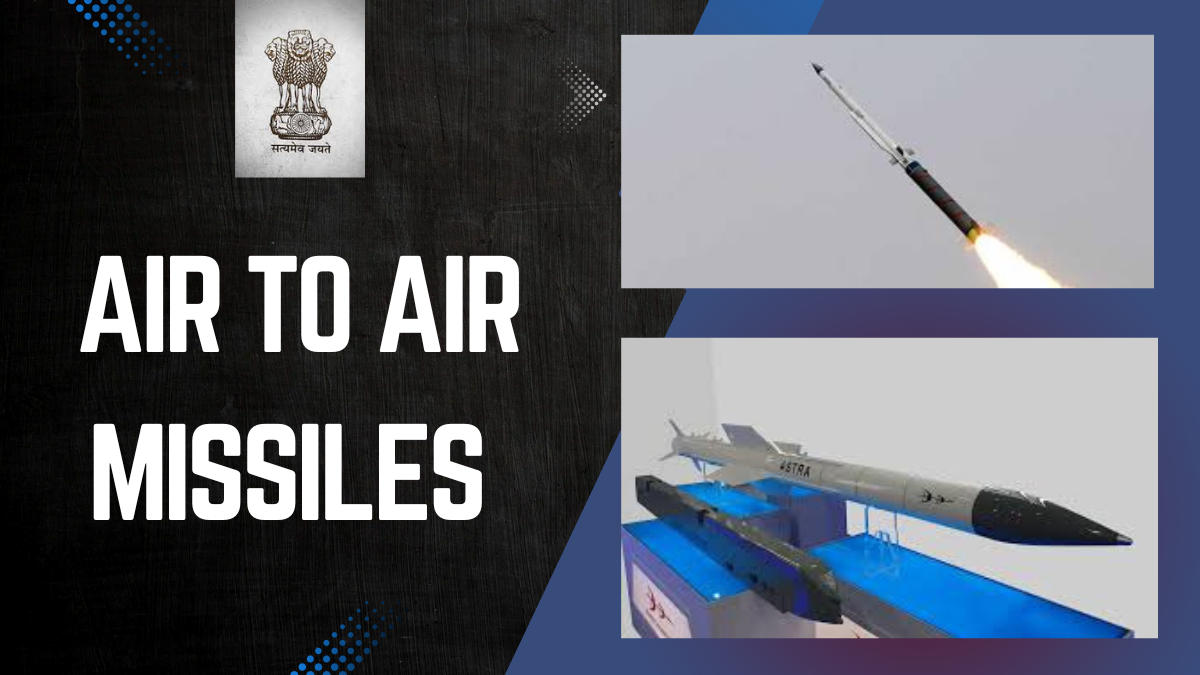


 CDS Exam Pattern 2025, OTA, IMA, INA and...
CDS Exam Pattern 2025, OTA, IMA, INA and...
 Indian Coast Guard Navik Selection Proce...
Indian Coast Guard Navik Selection Proce...
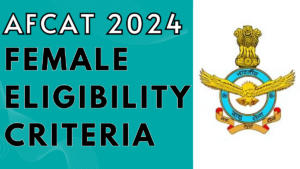 AFCAT Females Eligibility Criteria, Know...
AFCAT Females Eligibility Criteria, Know...

